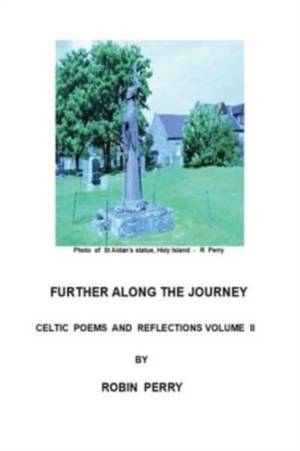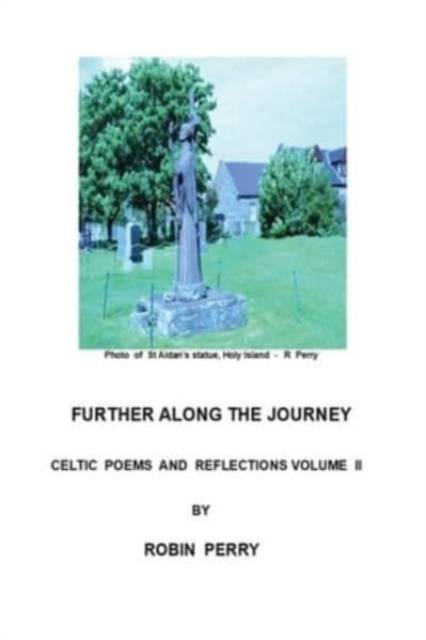
- Afhalen na 1 uur in een winkel met voorraad
- Gratis thuislevering in België vanaf € 30
- Ruim aanbod met 7 miljoen producten
- Afhalen na 1 uur in een winkel met voorraad
- Gratis thuislevering in België vanaf € 30
- Ruim aanbod met 7 miljoen producten
Zoeken
Omschrijving
Further on the Journey is the second volume of Celtic poetry written by the author and features several poems inspired by the person and work of Northumberland's great saint, Aidan. He was volunteered to start a work of outreach to the Northumbrians who at that time comprised a mix of Celtic and Anglo-Saxons incomers who quickly established their communities in the North-east of England.
Under the Christian Anglo-Saxon Bernician king, Oswald, who united the Northumbrian kingdoms, Aidan found a benevolent ally to help spread and establish the Celtic Christian faith throughout Northumbria until the Synod of Whitby in 664 voted to follow the Roman rather than Celtic traditions. Within 130 years of the Synod the Viking invasion on the north-east coast had destroyed the monastery on Holy Island and many others were similarly destroyed in the following years.
The poems reflect the contemplative lifestyle of men like Aidan, Cuthbert and their contemporaries, include some of the cultural and historical aspects of the time and depict the ruthless violence that robbed this thriving culture of so much. The book ends with reflective and proverbial sayings that draw on the influence of the North African Desert Fathers upon Celtic thinking
Under the Christian Anglo-Saxon Bernician king, Oswald, who united the Northumbrian kingdoms, Aidan found a benevolent ally to help spread and establish the Celtic Christian faith throughout Northumbria until the Synod of Whitby in 664 voted to follow the Roman rather than Celtic traditions. Within 130 years of the Synod the Viking invasion on the north-east coast had destroyed the monastery on Holy Island and many others were similarly destroyed in the following years.
The poems reflect the contemplative lifestyle of men like Aidan, Cuthbert and their contemporaries, include some of the cultural and historical aspects of the time and depict the ruthless violence that robbed this thriving culture of so much. The book ends with reflective and proverbial sayings that draw on the influence of the North African Desert Fathers upon Celtic thinking
Specificaties
Betrokkenen
- Auteur(s):
- Uitgeverij:
Inhoud
- Aantal bladzijden:
- 86
- Taal:
- Engels
Eigenschappen
- Productcode (EAN):
- 9781839458484
- Verschijningsdatum:
- 8/03/2021
- Uitvoering:
- Paperback
- Formaat:
- Trade paperback (VS)
- Afmetingen:
- 152 mm x 229 mm
- Gewicht:
- 136 g

Alleen bij Standaard Boekhandel
+ 19 punten op je klantenkaart van Standaard Boekhandel
Beoordelingen
We publiceren alleen reviews die voldoen aan de voorwaarden voor reviews. Bekijk onze voorwaarden voor reviews.











